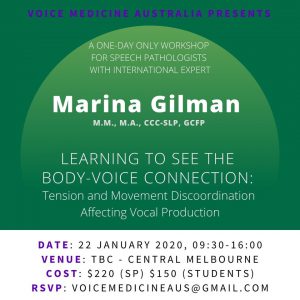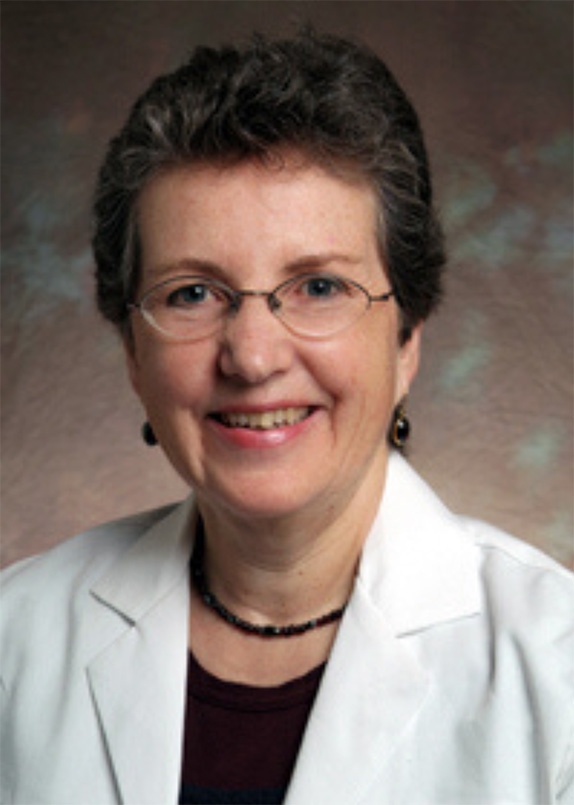Learning to see the Body-Voice connection: Tension and Movement Discoordination Affecting Vocal Production
A one-day only workshop for speech pathologists with international expert Marina Gilman

Current trends in voice rehabilitation for both the singing and speaking voice are informed by vocal physiology or ‘evidence-based’ protocols. While these are all essential to providing good therapy, they do not always address the voice-body connection.
We rarely learn how to assess and then facilitate the patient’s ability to identify movement and somatic patterns that are undermining good voice production. Over time, many of us acquire an intuitive sense of these somatic issues, but don’t always know how to address them effectively in the context of voice therapy.
This hands-on, interactive workshop will focus on developing the following skills:
- Circum-laryngeal manipulation with focus on the hyoid.
- Seeing the variations in ‘clothing anatomy’ as a means of understanding respiratory inefficiency and tension.
- Developing strategies for training somatic awareness of maladaptive postural patterns that impinge on respiratory/phonatory coordination.
- Exploring somatic means to help the patient discover new avenues for optimising function relating to posture and voice.
About the Presenter

Marina Gilman, M.M., M.A. CCC-SLP is a voice teacher, performer, Guild Certified Feldenkrais® Practitioner, and speech language pathologist. She recently relocated to Washington DC having retired as a member of the interdisciplinary voice team at the Emory Voice Center, Emory University Department of Otolaryngology, Head & Neck Surgery in Atlanta, Georgia. Before moving to Atlanta, Marina was part of the laryngology team at the Loyola Voice Institute, the Bastian Voice Institute, and the University of Chicago Hospitals, Center for Speech and Swallowing Disorders in Chicago. Prior to becoming a licensed speech language pathologist, she taught voice at Cornell University, Syracuse University, and in the Theater School at DePaul University Chicago.
Over the past 35 years she has presented workshops and published her research focused on the role of posture in respiratory phonatory coordination as well as the somatic aspects of voice training developed through her clinical practice, research, and studio teaching at major national and international conferences for speech and language pathologists and singing teachers. She is the author of BODY AND VOICE: SOMATIC RE-EDUCATION (Plural Publishing, 2014), available through Amazon.com.